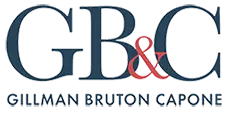The Coronavirus outbreak has caused the unprecedented shutdown of businesses by the government. While this may be necessary to control the spread of the virus, the shutdown is having a devastating effect on businesses throughout the country. With New Jersey being impacted by the virus more than most other states, the economic fallout will be substantial. Will the Coronavirus stimulus package help and how can a small business survive?
how does the stimulus package help small businesses
- A $350 billion forgivable loan program designed to ensure that small businesses do not lay off employees
- A 50% refundable payroll tax credit on worker wages will further incentivize businesses, including ones with fewer than 500 employees, to retain workers
- Looser net operating loss-reduction rules that will allow businesses to offset more
- A delay in employer-side payroll taxes for Social Security until 2021 and 2022
- Sole proprietors and other self-employed workers could be eligible for the expanded unemployment-insurance benefits the bill provides
- A portion of the $425 billion in funds appropriated for the Federal Reserve’s credit facilities will target small businesses
The $350 Billion loan program
- The Small Business Administration will oversee the program, which will distribute the $350 Billion in loans, much of which can be forgiven under certain circumstances.
- Loans will be administered by banks and other lenders, which will hopefully speed up the process
- Businesses can receive loans up to $10 million, based on how much the company paid its employees between Jan. 1 and Feb. 29. The loans will carry an interest rate up to 4%. The bill provides for an expedited origination process.
- If the business uses the funds for approved expenses, (payroll, rent, mortgage interest, and utility payments) and maintains the average size of its workforce based on when it received the loan, then the principal of the loan will be forgiven and the business will only have to repay the accrued interest.
is this enough to help small businesses make it through this crisis
The problem is that for the three weeks preceding the passing by Congress of the stimulus package most small businesses have been scrambling to make payroll, sort out which staff they can keep on — and which they can’t — and figure out some way to keep revenue coming in. This has been a near impossible task considering almost no one is working and many are receiving little or no income at the moment. Would be customers are saving the limited funds they may have for necessities. So the short answer is the stimulus package will not enough for most businesses.
Presently, most small businesses are working with lenders, credit card companies and vendors in an effort to push off payments that are coming due. Many lenders and credit card companies are agreeing to delay payment due dates and waive late fees, but most are not waiving interest. So what happens when all the payments come due again, interest has accrued on the business’ current loans and now they have an additional payment to make to cover the interest on the Small Business stimulus loan they received? It is a problem.
Most businesses are holding on by a thread. The stimulus package may help them cover some of their payroll and rent, but what about the rest of their expenses? The package doesn’t take into account the overall impact this shutdown has had and will continue to have on the economy as a whole. When will people be back to work and when will the country start feeling comfortable enough to start spending money?
So how do you save the business you’ve worked your whole life to build? Are there any other tools you can use to help your business survive this disaster?
sub-chapter v small business reorganization a powerful tool
Sub-chapter V under Chapter 11 was passed into law as of February 20, 2020. Sub-Chapter V is a vehicle for small businesses to reorganize in a much more economical and expedient manner than they previously could under Chapter 11. Previously, Chapter 11 was cost prohibitive to many small businesses and for those that could afford to file, it was very difficult to confirm a plan of reorganization.
What Sub-Chapter V offers Small Business Debtors:
- Both individuals and business entities, may be Small Business Debtors under new Sub-chapter V. Must be engaged in commercial and business activities having aggregate non-contingent liquidated secured and unsecured debt, excluding debts owed to affiliates or insiders, of not more than $2,725,625 (as of April 4, 2019). The SBRA adds the requirement that not less than 50% of that debt has arisen from commercial or business activities.
- The Small Business Debtor must file a plan within 90 days of the order for relief unless the court extends that period upon a finding that such an extension is “attributable to circumstances for which the debtor should not justly be held accountable.” Only the Small Business Debtor may file a plan; no competing plans may be filed.
- Section 1102(a)(3) provides that “[u]nless the court for cause orders otherwise, a committee of creditors may not be appointed in a small business case . . . .”
- The Small Business Debtor does not need to file and have the Court approve a Disclosure Statement. The SBRA simply requires that “[a] plan filed under this subchapter—(1) shall include—(A) a brief history of the business operations of the debtor; (B) a liquidation analysis; and (C) projections with respect to the ability of the debtor to make payments under the proposed plan of reorganization.” See § 1190.
- The Absolute Priority Rule Is Inapplicable. The prohibition on equity owners retaining their interests in the debtor without paying holders of non-consenting impaired classes (see § 1129(b)), does not apply in cases under Sub-chapter V. See § 1181(a).
- Confirmation of the Plan of Reorganization can occur without the vote of any impaired consenting class.
- Disposable income for a Small Business Debtor has been redefined and means the income that is received by the debtor and that is not reasonably necessary to be expended for: (1)(A) the maintenance or support of the debtor or a dependent of the debtor; or (B) a domestic support obligation that first becomes payable after the date of the filing of the petition; and (2) the payment of expenditures necessary for the continuation, preservation, or operation of the business of the debtor. See § 1191(d). This new definition of disposable income does not reference section 1325(b)(2), as does section 1129(a)(15). The import is that Small Business Debtors who elect into Sub-chapter V will not be subject to the expense limitations imposed on above-median income Chapter 13 debtors.
- Modification of Mortgages on Debtor’s principal residence is now permitted. Under section 1190(3), a Small Business Debtor may now modify the rights of the holder of a claim secured only by a security interest in real property that is the principal residence of the debtor “if the new value received in connection with the granting of the security interest was—(A) not used primarily to acquire the real property; and (B) used primarily in connection with the small business of the debtor.”
- Sub-chapter V plans may be confirmed under section 1191(b) (without the consent of all impaired classes) that provide for the payment through the plan of section 503(b) administrative expenses . See § 1191(e). This means that it is possible now for the Small Business Debtor to pay attorney’s fees through its plan, thus allowing attorneys to require less as a retainer and less that a Debtor would have to pay upon confirmation of the Plan.
So even though the stimulus package may not in itself save small businesses, there is hope that your small business can make it through this crisis. Sub-Chapter V is an available and potentially powerful tool to help small businesses reorganize and survive in whatever their new economic reality becomes.


